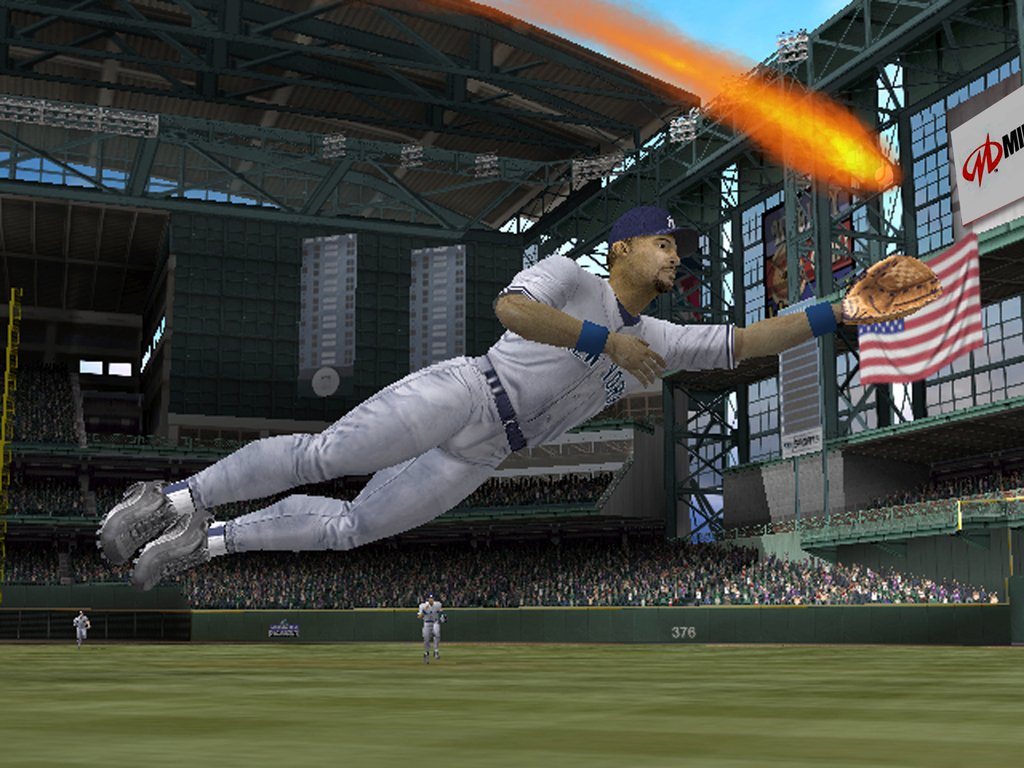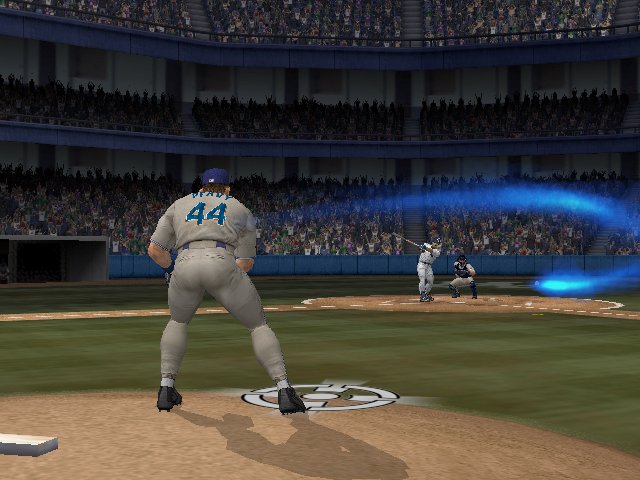Midway's MLB SlugFest series brings baseball to the same extreme that you'd expect from the company's long-running, over-the-top sports franchises. The rule set is stripped down, you can clock people in the face while running around the bases, and there are plenty of wild super pitches and chances to set yourself "on fire." While the SlugFest series never got as big as NBA Jam or Blitz did, it's still been a sharp, arcade-style baseball series that has gotten better over the years. Which is why MLB SlugFest 2006 is such a shame. It has lost features that were present in its 2-year-old predecessor, it looks really grungy, and overall, it feels like a soulless cash-in designed to take advantage of Midway's expiring MLB license.

In fact, that's probably exactly what this is. The game's rough look, unimaginative modes, and out-of-date rosters immediately give you the impression that someone at Midway woke up one morning and realized "hey, we have a license that gives us until the end of the year to put out a baseball game," and then set the wheels in motion as cheaply as possible. Previous SlugFest games had online. That's gone here, but you can play two-player games locally. And the graphics and design look like very bare-bones updates to 2004's SlugFest: Loaded, which is to say that they weren't mind-blowing two years ago, and in 2006, they don't look very good at all. Continuing the no-frills trend set by the rest of the game's presentation, the game doesn't have any HD or widescreen support at all.
But there's a catch. Since MLB SlugFest: Loaded was actually a very good game back in 2004, that means that this edition is not without its merits. The gameplay, while roughly identical, is still an effective and accessible game of baseball. Things like swinging and pitching aren't nearly as complicated as they are in a simulation-style baseball game, but the game's set of trick pitches helps keep things interesting. And if the over-the-top rules--which allow for punching on the basepath and plenty of superhuman feats that require the use of your team's turbo meter--are too much for you, you can turn most of that stuff off and get back to the actual rules of the game. The game controls pretty well on both the PlayStation 2 and the Xbox.
Your options are pretty limited. You can get into a season, play exhibition games, enter a home run derby, or even get into some team editing. One of the new features in this year's game is a player editor that lets you create your own guys using a small set of premade parts. It's a nice feature to have, but it doesn't make a large difference at all.

The sound has been a highlight of past SlugFest games, as the two-man announce team of Tim Kitzrow (who is the same man that brought you such hits as "Boomshakalaka" and "He's on fire" back in the NBA Jam days) and Jimmy Shorts has offered up some solid comedy. That formula is back in SlugFest 2006, but the commentary doesn't feel as snappy as it used to. The phrases are noticeably stitched together and the comedic timing seems off. Still, there's some decent commentary here.
In the end, SlugFest's budget price certainly helps it, but it doesn't save it. Too many facets of the game feel completely phoned-in to make this a worthwhile purchase, even at $20. It's really too bad that this quality baseball series couldn't go out in a classier fashion.